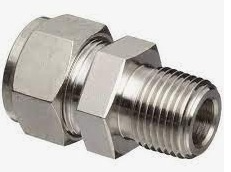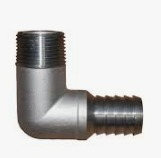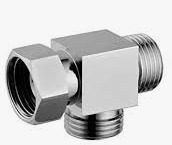Hydraulic systems are the powerhouse behind numerous industrial and heavy machinery applications. They provide the muscle, precision, and control required to operate everything from aircraft landing gear to construction equipment.
In the realm of hydraulic systems, where force and precision are paramount, high pressure hose adapters emerge as unsung heroes. These unassuming components play a critical role in ensuring that hydraulic systems operate smoothly and efficiently.
Understanding High Pressure Hose Adapters
High pressure hose adapters, as the name suggests, are connectors that join high-pressure hydraulic hoses to various components within a hydraulic system. They are designed to withstand extreme pressure levels without compromising the integrity of the connection.
Types of Hose Adapters
High pressure hose adapters come in several configurations, each catering to specific needs within a hydraulic system. Understanding the types of adapters is crucial for selecting the right one for the job.
1. Straight Adapters
Straight adapters are the simplest type, providing a direct, inline connection between two components or hoses. They are ideal for applications that require a continuous flow without angular deviations.
2. Elbow Adapters
Elbow adapters, with their angled design, allow for connections at a 90-degree or 45-degree angle. These adapters are invaluable when hoses need to navigate tight spaces or when a change in direction is required.
3. Tee Adapters
Tee adapters, as the name implies, resemble the shape of a “T.” They provide a means to split hydraulic lines into two, facilitating branching connections. Tee adapters are essential for systems with multiple components or for diverting fluid in different directions.
Materials and Durability
A. Steel Adapters
Steel adapters are known for their strength and durability. They are capable of withstanding high pressure and are ideal for heavy-duty applications.
B. Stainless Steel Adapters
Stainless steel adapters combine strength with corrosion resistance. They are often used in applications where exposure to moisture or corrosive elements is a concern.
C. Brass Adapters
Brass adapters offer a balance between strength and cost-effectiveness. They are commonly used in applications where high pressure is not the primary consideration.
High Pressure Ratings
A. Handling Extreme Pressure
High pressure hose adapters are engineered to handle extreme pressure levels, often exceeding thousands of pounds per square inch (psi). This capability is essential in heavy machinery and industrial settings.
B. Importance of Pressure Ratings
Understanding the pressure rating of an adapter is critical for ensuring that it can withstand the demands of the hydraulic system. A mismatch in pressure ratings can lead to leaks and system failures.
Sealing Mechanisms
A. O-Ring Seals
O-ring seals provide an effective and reliable means of preventing leaks in high pressure connections. These rubber or elastomeric rings create a secure seal when pressure is applied.
B. Threaded Seals
Threaded seals rely on the precision of threaded connections to prevent leaks. When properly tightened, threaded adapters create a strong seal.
➡️➡️➡️ Do you know Cone Fittings? Read here!!! ⬅️⬅️⬅️
What is a High-pressure Hose Used For: Applications in Various Industries
A. Aerospace and Aviation
In the aerospace industry, high pressure hose adapters are used in critical applications, such as controlling landing gear, wing flaps, and hydraulic actuators.
B. Automotive Industry
In the automotive sector, these adapters facilitate power steering systems, braking systems, and transmission control in vehicles.
C. Manufacturing and Heavy Machinery
Manufacturing relies on hydraulic systems for various operations. High pressure hose adapters are vital in CNC machines, injection molding, and other heavy machinery.
D. Construction and Agriculture
Construction equipment and agricultural machinery use hydraulic systems to perform tasks like lifting, digging, and material handling. High pressure adapters ensure the integrity of these systems.
Benefits of High Pressure Hose Adapters
A. Leak Prevention
One of the primary benefits of high pressure hose adapters is their ability to prevent leaks. Hydraulic systems are unforgiving when it comes to leaks, as they can lead to catastrophic failures and downtime.
B. Secure Connections
These adapters ensure secure connections between hydraulic components, enhancing the overall efficiency and reliability of the system.
C. Durability and Longevity
Their robust construction and resistance to high pressure make high pressure hose adapters exceptionally durable, resulting in a longer service life.
D. Easy Installation
Despite their critical role, high pressure hose adapters are easy to install, simplifying maintenance and replacement procedures.
Choosing the Right Adapter
A. Compatibility
Selecting a compatible high pressure hose adapter for your hydraulic system is crucial. Ensuring that it fits seamlessly with other components is vital for efficient operation.
B. Sizing and Thread Type
High pressure adapters come in various sizes and thread types. Choosing the right size and thread ensures a snug fit.
C. Material Selection
Consider the material of the adapter to align with the environmental conditions and pressure requirements of your specific application.
Installation Guidelines
A. Proper Torque
Proper torque during installation is crucial to prevent under-tightening or over-tightening, both of which can lead to connector failure.
B. Lubrication
Using appropriate lubrication during installation reduces friction and ensures a secure connection.
C. Inspection and Maintenance
Regularly inspecting and maintaining high pressure hose adapters is essential to detect wear and tear, leaks, or potential issues.
Safety Considerations
A. Avoiding Pressure Surges
Proper system design and the use of high pressure hose adapters that can withstand pressure surges are essential for safety.
B. Burst Protection
High pressure systems are susceptible to bursts under certain conditions. High pressure hose adapters play a role in preventing bursts, ensuring safety.
C. Regular Inspections
Conducting routine inspections of high pressure hose adapters and the entire hydraulic system is a safety measure to identify potential problems.
Industry Standards and Certifications
A. SAE Standards
The Society of Automotive Engineers (SAE) has established standards for hydraulic systems and components, ensuring quality and safety.
B. ISO Certifications
The International Organization for Standardization (ISO) offers certifications that indicate adherence to international quality standards.
Conclusion
A. The Evolution of Hydraulic Systems
As technology evolves, the role of high pressure hose adapters remains pivotal in modern industry, adapting to the changing needs and challenges of the 21st century.
B. High Pressure Hose Adapters: A Catalyst for Efficiency
High pressure hose adapters may be small in size, but they are monumental in their impact, ensuring hydraulic systems run smoothly and safely.
Post time: Nov-23-2023




